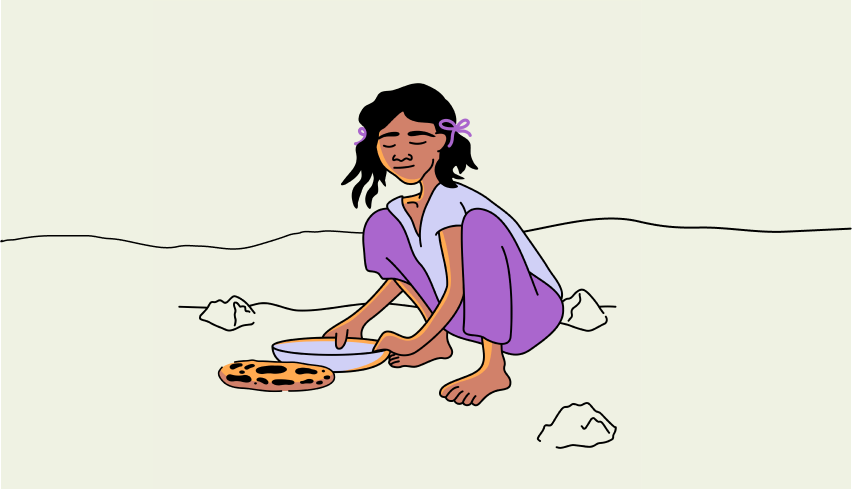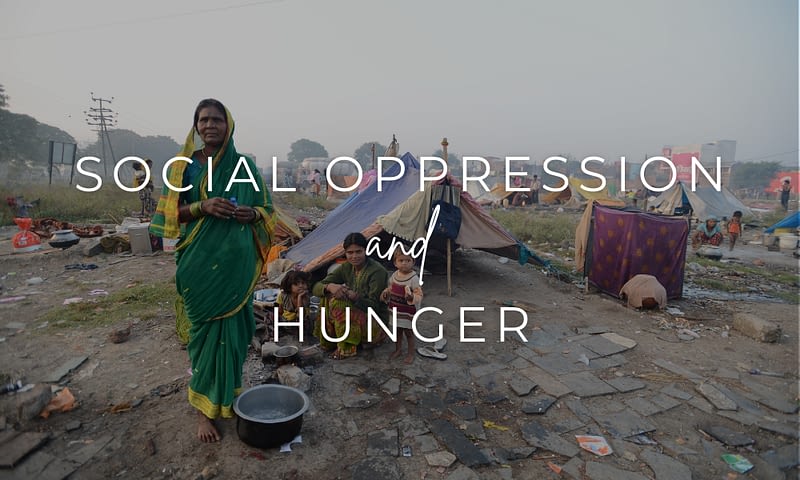When we talk about “hunger” there are 3 ways we can talk about it:
Malnutrition: When a person doesn’t get the nutrients needed to grow and thrive. This can be a lack of food, but most of the time it’s because of empty calories, meaning there are calories, but no nutrition. Think about if all you could eat was potato chips. They have plenty of calories, but they don’t have protein, vitamins or minerals. Your body can’t survive on just potato chips very long because you need nutrition.
Famine: This is wide-spread food scarcity. Meaning there isn’t enough food to go around. This often happens around wars, migration of people groups in need of safety or under a dictator. This can also happen when a people group has used up all the natural resources around them.
Starvation: This happens when you don’t have enough food for a long time. You will lose more and more weight until finally your body can’t keep going. This also occurs around wars, migrations and dictatorships and is the most extreme form of hunger.
The most consistent and deadly form of hunger across the global is malnutrition. Malnutrition is widespread and hard to spot to an untrained eye. It isn’t as obvious as famine and starvation. Where malnutrition can be passed from generation to generation, famine and starvation happen around an event and often wipe out the bloodlines of those suffering. Malnutrition does slowly, what famine and starvation do quickly. Marginalized people groups are the ones who suffer from any form of hunger. What causes a people group to be marginalized? Social oppression.
Social oppression plays a huge role in who suffers from hunger and who doesn’t.
Social Oppression is unfairly treating a person or group of people who are different from other people or groups of people. A few examples of social oppression include racism (treating people different based on their skin color or ethnicity), sexism (treating people different based on their gender), religious persecution (treating people different because of their religion.) and economic oppression. (treating people differently based on their income.)
Social oppression manifests itself by deciding what neighborhoods you can live in, what jobs you can get, where you can go to school, what markets you can shop at and what time of day you can shop, cook food or eat. People groups and communities that suffer from social oppression have a much higher rate of hunger because they don’t have access to high paying jobs, their neighborhoods are located in food deserts or their schools do not have enough funding to provide extra food for students and families who need it.
While social oppression is a governmental issue, there are things we as individuals can do to help ease the suffering of those facing hunger because of social oppression. Volunteering, donating to your local food bank, partnering with local schools to give out food boxes and donating to help administer emergency feeding when needed are all ways you can help push back hunger and fight social oppression.






